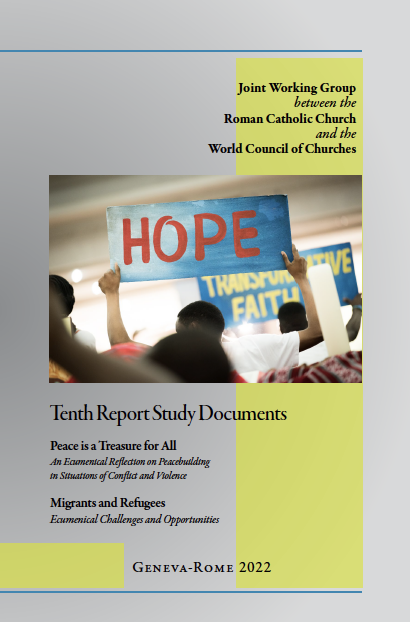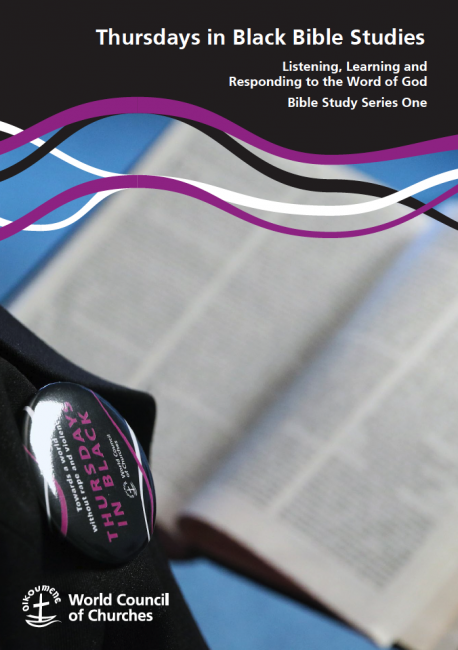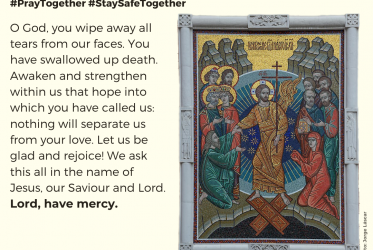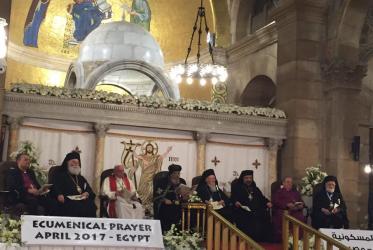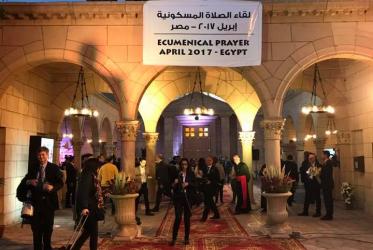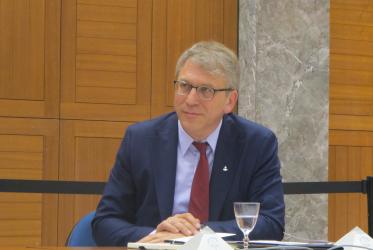Displaying 1 - 20 of 29
Tenth Report Study Documents
19 August 2022
WCC honoured with Geneva Engage Award
01 February 2022
Thursdays in Black Bible Studies Series 1
Listening, Learning and Responding to the Word of God
21 October 2021
Morning Prayer for Tuesday, 6 April 2021
06 April 2021
A visionary missionary heads home
25 March 2020
Peacemakers at work in Sri Lanka
29 April 2019
Peacemaking “a great and compelling life task”
09 December 2017
Roman Catholic-WCC group focuses on peace-building, migration
19 September 2017
Historic ecumenical prayer in Egypt for peace and unity
30 April 2017
What does ‘prudence’ mean for dialogue and peace-building?
16 November 2016

